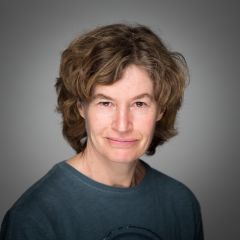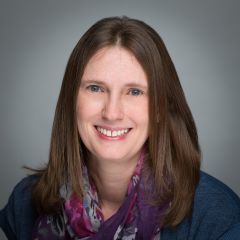Postdocs at NDORMS

We have over 100 postdocs at NDORMS, part of a thriving multidisciplinary team of 400 researchers. We are committed to providing postdocs with excellent research opportunities, as well as career support and professional development.
If you like to join our growing team as a Postdoc, please review our opportunities available here. You can also find out about our current vacancies here.
Postdoc advisors
Informal and confidential career discussion sessions for NDORMS contract staff can be booked at any time with:
|
(Botnar 1) Moved country 5 times, 4 research institutes, foreign PhD, foreign postdoc, foreign early career fellowship, 2 UK career Fellowships, twice tenured South Africa and UK.
|
(KIR) Post Doc experience in the US and UK, early and senior fellowships, grant review panels, balancing research with family life, tenure track. |
(Botnar 2) Several research institutes. Moved countries- UK/Australia. Kids and family. Career fellowships. Tenured. Clinical Interface. National committee and NIHR representation |
|
(Botnar 1) Oxford student to Oxford PI via alternative paths in scientific research through US, Australia and UK; fellowship and industry funding approaches, building a family life in and around academic sciences. |
(KIR) 4 Research institutes- 3 EU countries and USA. Post doc experience in the US and Netherlands. Grant writing. Balancing research with family life. |
(KIR) PhD and post doc in US, Postdoc in Australia, postdoc fellowship and early career grants, starting up a new lab, working towards tenure, finding balance in research and family life. |
postdoc contacts
Your point of contact if you want to feed ideas/comments/requests through to Division or for general discussion by the NDORMS Postdoc Advisor group.
|
|
|
The aim of the pilot mentoring scheme is to assist mentees to achieve personal and professional growth through a mentoring relationship that provides support as he/she progresses and develops within the department and university. Equally the scheme also offers benefits to the mentor and to the department.
Mentoring
There are three principles of our mentoring scheme:
- Participation is on a voluntary basis.
- The relationship is confidential.
- The mentor will be outside the mentee's direct line management chain, with greater experience in one or more areas, and is able to exchange knowledge through relationships of mutual influence and learning.
Who are mentees?
Mentees are those individuals with a genuine desire for further development. They need to be fully committed to the programme by accepting the challenges and taking risks in order to progress.
What can a mentee expect?
We want you to gain the maximum benefit from a departmental mentoring scheme by providing a straightforward process with clearly defined aims.
To support mentees we have created the Mentoring Scheme Booklet for Mentees which you should use as an opportunity to consider the commitment you will make as a mentee, understand the boundaries of the mentoring.
Who are mentors?
Mentors are departmental facilitators who allow their mentees to discover their own direction by offering guidance. A mentor is a source of information and knowledge in addition to being a skilled questioner.
Mentors have more expertise than the mentee so the difference between the mentor and mentee is valued because it is mainly the source of learning for the mentee.
Mentors also offer ‘softer’ skills such as listening skills and a genuine commitment to advance their mentees. Mentoring is therefore an all-inclusive description of support for the mentees orientation and professional development.
At the beginning of the scheme mentees should:
- Agree personal ground rules with their mentor and fellow mentees e.g. be non- judgemental.
- Agree the scope of the circle, what it is and what it is not e.g. It is positive but challenging, it is not providing magic answers.
- Ensure everyone agrees to make the relevant time commitments to ensure that all circle members have balanced and mutual support.
- Also agree how you will manage exceptions e.g. Will the mentor and mentee have informal contact between meetings?
At the end of the scheme:
Mentees and Mentors will be asked to complete a short survey on their experiences within the mentoring scheme.
Mentors will agree to act as enablers, helping the mentees to realise their potential and uncover hidden talents/abilities. As a mentee you must actively engage in a non-judgemental, caring yet challenging manner.
Duration of the scheme:
Mentors and mentees agree to join this scheme for a year, and to meet at least three times a year. At the end of the year they will be asked whether they would like to continue as mentors/mentees.
Thinking about becoming a Mentor?
Who can be a mentor?
Any experienced researcher/academic can be a mentor. If you are happy to pass on experiences you have had and be interested in developing yourself and others please read the Mentoring Scheme Booklet for Mentors and then contact Maria Granell Moreno to register. Mentors are facilitators who allow their mentees to discover their own direction by offering guidance.
Mentoring is an all-inclusive description of support for the mentees orientation and professional development.
What can a mentor expect?
To support mentors we will be running short briefing and training sessions for mentors and mentees. This is an opportunity to consider the skills necessary for a mentor, understand the boundaries of the relationship and raise any issues. There will be also on-going departmental support from the Mentoring scheme team, our Equality and Diversity advisor, OLI and MSD.
Why be a mentor?
While the focus of the mentoring relationship is primarily on the development needs and opportunities of the mentee there are also benefits for the mentor including:
- satisfaction of knowing that they can make a difference to someone else
- sharing contacts and increased networking opportunities
- increasing skills and reputation
- an opportunity to share experience and expertise
- enhancing their leadership skills
What should I consider before committing to mentor?
Mentors need to be able to commit for at least one year. In this time it is recommended that the mentor meets with the mentee at least 3 times with each meeting lasting at least one hour.
More Information
For Mentees:
For Mentors:
Oxford's high staff to student ratio makes it a very competitive University to gain teaching experience at, where even established lecturers compete to give mainstream student lectures. However, it is worth it!
NDORMS supports and encourages postdocs wishing to gain teaching experience, where suitable and agreed with your supervisor.
Within NDORMS we suggest the following:
- Complete the teaching part I (PLTO) and part II (DLT) courses available free via the Centre for Teaching and Learning. Note that this is compulsory if you wish to apply to teach on our NDORMS MSc and DPhil courses or to give FHS Medicine tutorials. (These courses are very popular so please don't book and cancel at the last moment or not at all - NDORMS then has to pay for your course and you block access for other users!)
Programmes and courses - You are invited to prepare and present lectures to our 1st year DPhil students. The course starts in October with general induction material for a broad multi-disciplinary group and continues with optional specialist modules. You may be required to practice your talk with a peer group before being accepted into the formal course. Please contact Sarah Snelling for details.
- Discuss any possible teaching opportunities on the NDORMS MSc in Musculsoskeletal Sciences with the course co-ordinator Prof Stephanie Dakin
- Ask your PI if you may advertise to host a project for an FHS (2nd year Medicine/Biomedical Science) or Biochem part II student. This will allow you to design a mini project, recruit the student, train and supervise their work and write-up and submit an OxCORT report (the Universities online reporting system). NDORMS provides some funds for FHS student projects after successful completion. Contact Prof Claire Edwards with enquiries.
- Talk to the staff members in OLI and contract staff training and get your name on the staff development mailing lists or any teaching opportunities lists. Details here. Be persistent and practise your networking skills!
For general queries and advice contact the Postdoc advisors - Prof Philippa Hulley, Prof Kim Midwood, Dr Linda Troeberg, Prof David Beard, Dr James Edwards, Dr Audrey Gérard and Dr Jelena Bezbradica Mirkovic.








